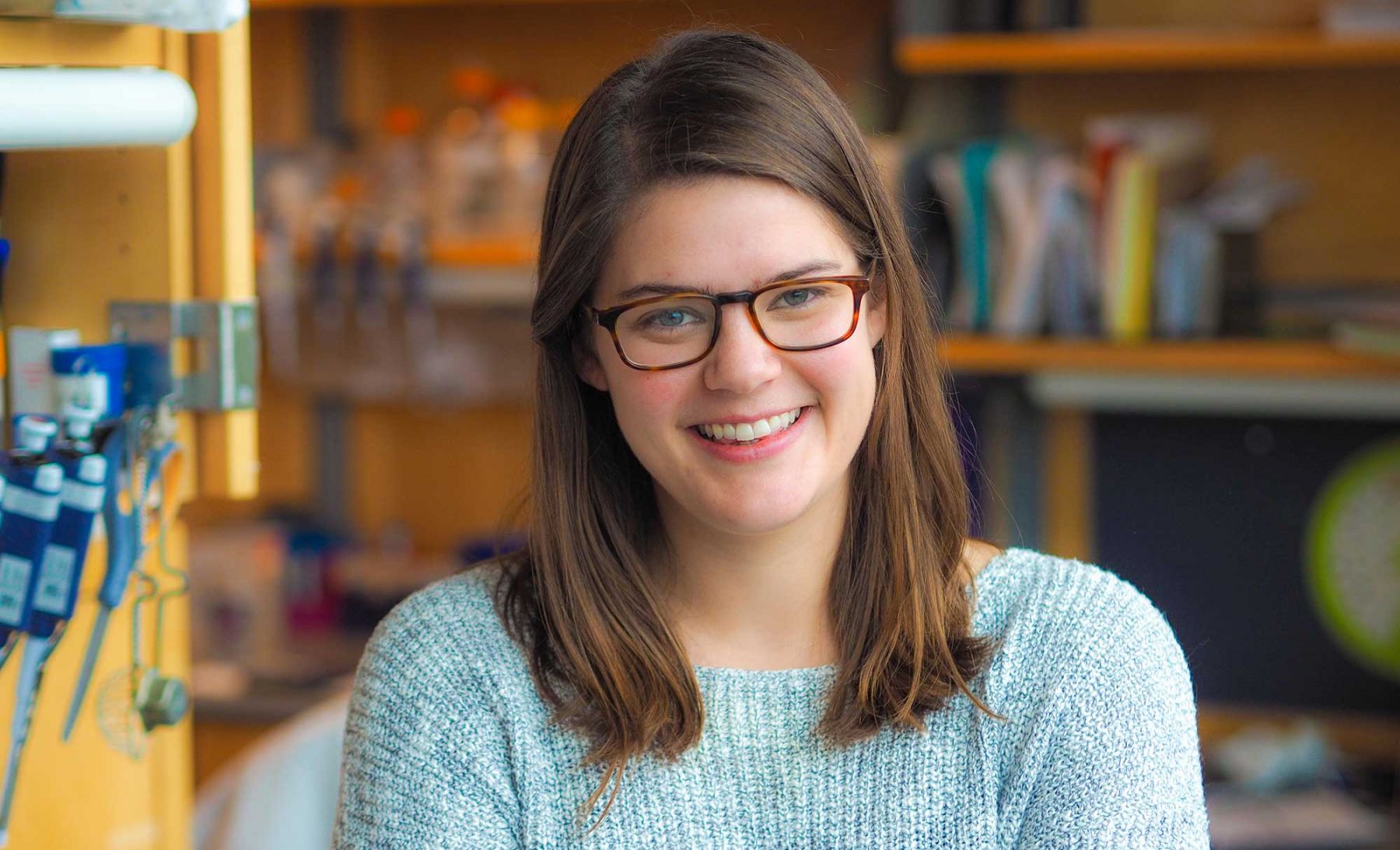About Meghan
Dr. Meghan Morrissey joined the faculty of UC Santa Barbara in the fall of 2020. She earned a B.S. in Biological Sciences from the University of Notre Dame and completed her Ph.D. at Duke University, before conducting postgraduate research at UC San Francisco. In addition, Dr. Morrissey is an NSF Graduate Research Fellow Program awardee, an NIH Ruth Kirschstein National Research Service Award recipient.
The Morrissey Lab focuses on cell signaling in macrophages, using synthetic biology and high-resolution microscopy. Dr. Morrissey aims to apply her research on macrophage decision-making to the development of cancer immunotherapies that harness macrophages in addition to T cells.
Why UC Santa Barbara?
I was drawn to the MCDB because of the strength and breadth of research in quantitative biology, as well as the collaborative atmosphere. For example, Tony DeTomaso and I are interested in really similar questions, but he uses amazing sea creatures as a model and I use mammalian cells. During the interview process, I had great conversations with faculty in physics and engineering as well. The communication and collaboration between departments was a huge draw for me.
I’m thrilled to be living in Santa Barbara, with all of the amazing National and State Parks nearby. I love hiking, backpacking, and hanging out outdoors. I'm looking forward to planting a lemon tree.
My goal is to uncover fundamental principles of macrophage signaling and tune macrophage function in the tumor microenvironment.
Meghan Morrissey
MCDB, UC Santa Barbara
Research
At the end of grad school, I knew I wanted to keep studying cell biology, and I wanted my work to be cancer-relevant. I was excited about the promise of cancer immunotherapy and knew there was much of immune cell biology that remained unknown. My work on macrophage signaling combined all of these interests. I approach the problem using microscopy, and if I can solve a problem using a microscope, I’m sold.
I study macrophages, which are immune cells that constantly survey their environment for injury and infection. Macrophages have to decide what to ignore, and what needs attention. Somehow, these complex decision-making networks are built using only the biochemical and biophysical properties of single molecules. To understand how macrophages make high fidelity decisions, I use synthetic biology and high-resolution microscopy to see when and where signaling molecules are activated. I focus on macrophage signaling pathways that can be co-opted to promote or suppress cancer growth, hoping to uncover better ways to design immunotherapies.
How and Why Did You Get Into Your Area of Research?
My favorite part of my research is connecting incredibly basic questions, like how a macrophage decides what to eat, to cancer therapies. Rewiring the immune system to attack cancer has been one of the most successful new cancer therapies in the last decade. Nearly all current cancer therapies target T cells, but I believe that with a little more mechanistic information, we would also be able to harness macrophages.
I love my research, but I find mentoring students to be the most rewarding. The most satisfying moments are when a student comes in with an idea and I think "Oh wow, I never thought of that."
Related Links
Video on this page does not contain audio.
